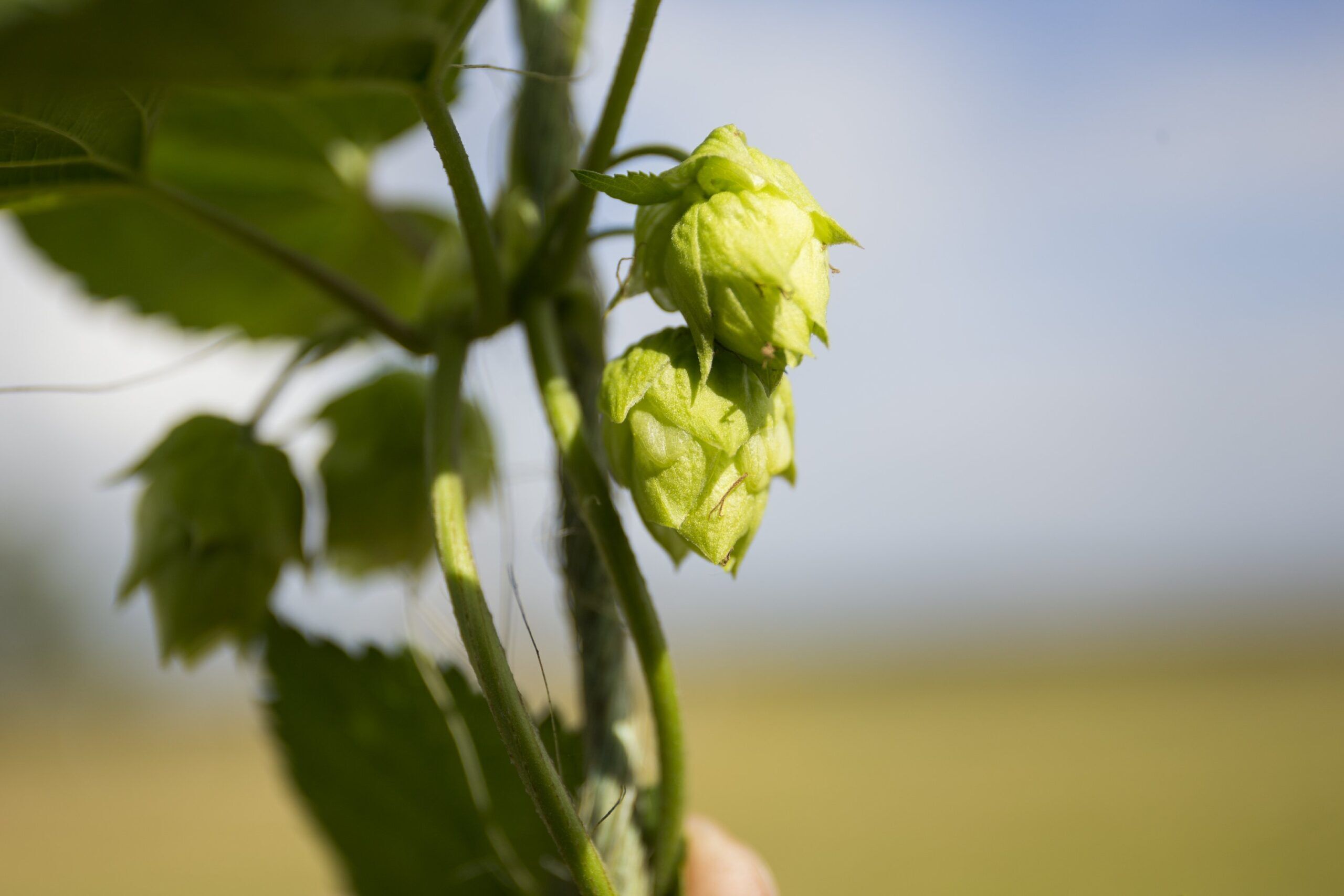Guest Post – The Science Behind the Sip from Univ. of Florida’s Institute of Food and Agricultural Sciences @IFAS_VP @UF_IFAS
By J. Scott Angle jangle@ufl.edu @IFAS_VP The Sunshine State doesn’t get enough daily hours of sunshine to grow a key beer ingredient commercially. So agricultural scientists just made the day longer in Florida. Glad there was an easy fix for that! Actually, researchers at the University of Florida’s Institute of Food and Agricultural Sciences (UF/IFAS) … Continue reading Guest Post – The Science Behind the Sip from Univ. of Florida’s Institute of Food and Agricultural Sciences @IFAS_VP @UF_IFASBy J. Scott Angle jangle@ufl.edu @IFAS_VP The Sunshine State doesn’t get enough daily hours of sunshine to grow a key beer ingredient commercially. So agricultural scientists just made the day longer in Florida. Glad there was an easy fix for that! Actually, researchers at the University of Florida’s Institute of Food and Agricultural Sciences (UF/IFAS) … Continue reading Guest Post – The Science Behind the Sip from Univ. of Florida’s Institute of Food and Agricultural Sciences @IFAS_VP @UF_IFASFeedzyRead More
Full content below:
By J. Scott Angle
@IFAS_VP
The Sunshine State doesn’t get enough daily hours of sunshine to grow a key beer ingredient commercially. So agricultural scientists just made the day longer in Florida.
Glad there was an easy fix for that!
Actually, researchers at the University of Florida’s Institute of Food and Agricultural Sciences (UF/IFAS) installed LED grow lights at an experimental hops yard. The plants have thrived with the additional hours of “sunshine.” It’s a major step forward in the quest for a truly made-in-Florida beer.
Growing hops here could grow the economy. Hops farmers have plenty of potential customers. The Tampa area alone has nearly 80 breweries, and the Brewers Association reports 329 statewide. They currently buy most of their hops from the Pacific Northwest.
UF/IFAS scientists have long supplied the know-how for Floridians to be producers instead of importers. Science makes Florida farmers efficient enough to compete against global competitors who pay workers a small fraction of our minimum wage and sometimes enjoy government subsidies.
Florida farmers are by some measures more self-reliant than their peers nationally as well. Government payments account for substantial percentages of farmers’ income in the Midwest. Not so in Florida.
What our state government does do is invest in innovation that keeps Florida farmers competitive. For example, the Florida Department of Agriculture and Consumer Services sponsors much of the grow lights experiment at the UF/IFAS Gulf Coast Research and Education Center in Balm. The Hillsborough County Economic Development Department has also supported hops research.
Florida craft brewers have been asking for locally grown hops and have helped informally field test the crop with specialty beers. If you drink Cigar City, 3 Daughters or Coppertail beer, it’s possible you’ve sampled some of the creations from UF/IFAS plant breeder Zhanao Deng. He develops hops varieties in Balm, including his “Deng Good Beer” for 3 Daughters. More than likely you haven’t, because it was produced in such small batches. It was more for promotion than profit.
Horticulturist Shinsuke Agehara experiments with the LED lights at the hops yard at the Gulf Coast REC. He’s experimenting with different trellis designs and heights, planting configurations, and amounts of water and fertilizers to develop the most productive and cost-effective production system.
We need you in this quest, too. First, please buy local. We can’t grow our own food unless you buy it. Look at labels to see where your food or your beer comes from.
Second, please support publicly funded science by engaging with your land-grant university as a student, donor, Extension client, volunteer or supporter. The stronger our land-grant university is, the more it can help tens of thousands of Florida farmers who cannot afford their own research and development departments.
If you take pride in drinking Florida-brewed beer, we think you’ll take a little more pride if it has Florida-grown ingredients.
Economists John Lai, Kevin Athearn and Bachir Kassas will be convening craft brewers in focus groups and querying them with surveys to get a feel for what the market is for Florida-grown hops. Is Florida-grown something they can sell to their customers? Will people pay a premium for it? How much?
They’ll compare what they hear from the demand end with the economics of supply. How much does it cost to run those LED lights? Do hops require a lot of water, pesticides and fertilizer?
The trio’s work is funded by a special initiative UF/IFAS launched this year to investigate adding to the state’s 300 crops. The list of potential new crops includes vanilla, barley, oysters and even goats. Past successes include blueberries, which decades ago couldn’t be grown here commercially but now fuel a $60-million-a-year industry and birthed a new Florida rite of spring, a visit to your local U-pick farm.
Hops is no sure bet, and UF/IFAS takes on the risk so small businesses like farms and craft brewers don’t have to. Farmers face enough risk without rolling the dice on an unproven crop. During COVID, they’ve donated their crops to food banks and even plowed under millions of pounds of great food because of slowdowns at the restaurants, theme parks and cruise ships that usually buy their crops.
You can support local farmers and brewers by supporting the public science that helps them overcome the myriad obstacles to producing what you hunger and thirst for. Cheers.
Scott Angle is the University of Florida’s Vice President for Agriculture and Natural Resources and leader of the UF Institute of Food and Agricultural Sciences (UF/IFAS).
Florida Beer Blog is a part of Florida Beer Media. Find us at FloridaBeerMedia.com.
Listen to the Florida Beer Podcast – Powered by Florida Beer Blog on Apple Podcasts, Google Podcasts, Spotify, Stitcher, and more!








